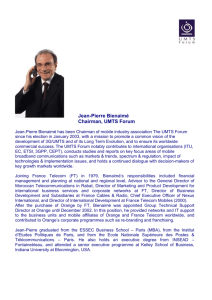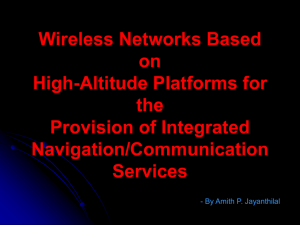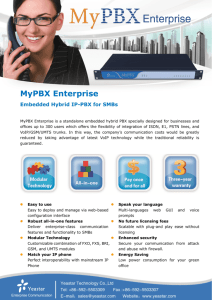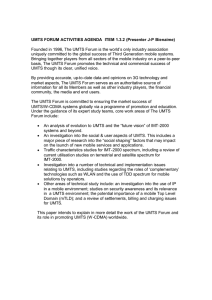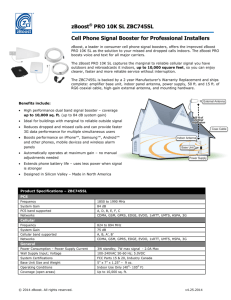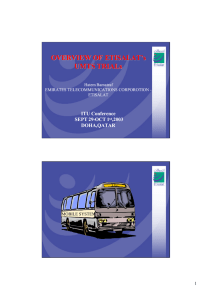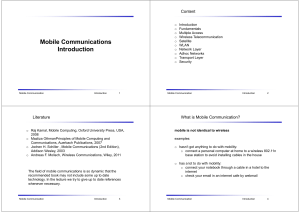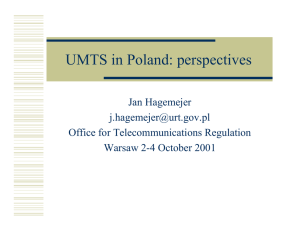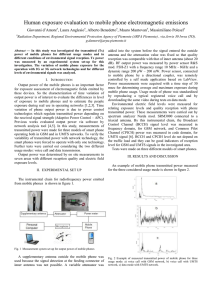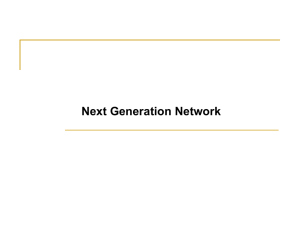Unit 1
advertisement
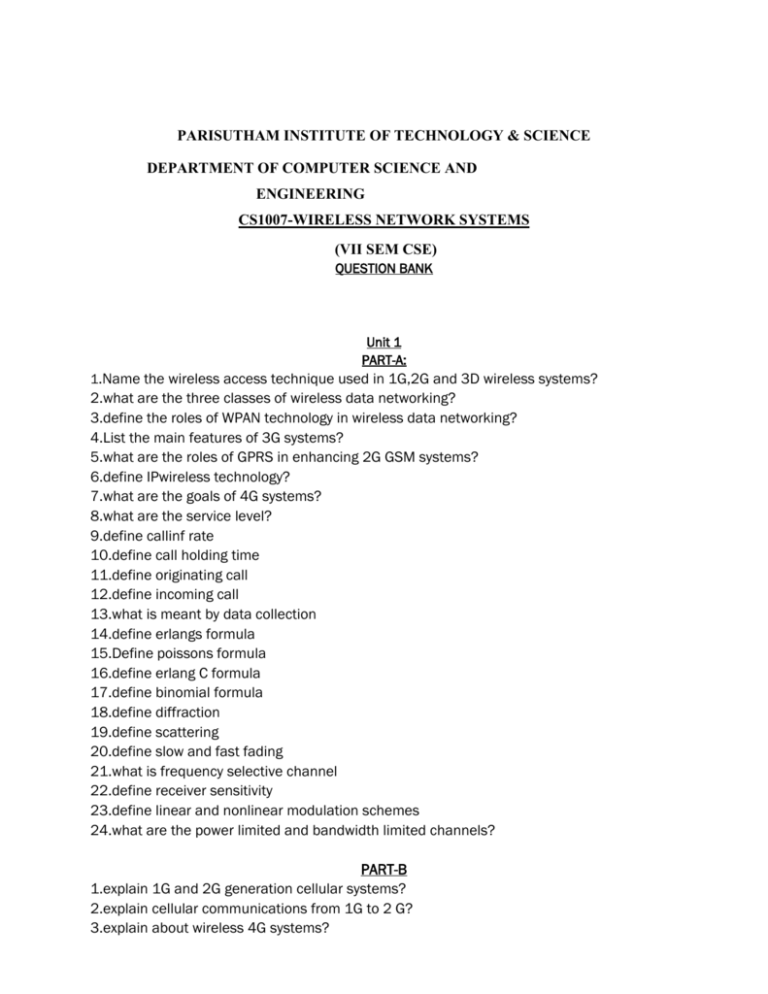
PARISUTHAM INSTITUTE OF TECHNOLOGY & SCIENCE DEPARTMENT OF COMPUTER SCIENCE AND ENGINEERING CS1007-WIRELESS NETWORK SYSTEMS (VII SEM CSE) QUESTION BANK Unit 1 PART-A: 1.Name the wireless access technique used in 1G,2G and 3D wireless systems? 2.what are the three classes of wireless data networking? 3.define the roles of WPAN technology in wireless data networking? 4.List the main features of 3G systems? 5.what are the roles of GPRS in enhancing 2G GSM systems? 6.define IPwireless technology? 7.what are the goals of 4G systems? 8.what are the service level? 9.define callinf rate 10.define call holding time 11.define originating call 12.define incoming call 13.what is meant by data collection 14.define erlangs formula 15.Define poissons formula 16.define erlang C formula 17.define binomial formula 18.define diffraction 19.define scattering 20.define slow and fast fading 21.what is frequency selective channel 22.define receiver sensitivity 23.define linear and nonlinear modulation schemes 24.what are the power limited and bandwidth limited channels? PART-B 1.explain 1G and 2G generation cellular systems? 2.explain cellular communications from 1G to 2 G? 3.explain about wireless 4G systems? 4.explain about call capacity 5.what are the steps involved in the office engineering considerations? 6.explain blocking formulas? 7.explain the structure of the transmitter for a radio system 8.write detail about sampling process 9.explain about PAM and PCM with diagram 10. explain performance parameters of coding and modulation scheme 11explain data communication services 12.exlain about multiplexing 13.explain transmission impairments UNIT-2 1.define FDD and TDD 2.what are the advantage and disadvantage of FDMA 3.define TDMA 4.what are the advantages and disadnvantage of TDMA 5.define spectral efficiency of modulation 6.define FDMA spectral efficiency 7.what is called exponential backoff algorithm 8.define p-persistent CSMA 9.define 1-persistent CSMA 10.Define non-persistent CSMA 11.Define CSMA 12.define stop and wait algorithm 13. draw a diagram for WWAN system 9.define ISDN 10.define TMSI 11.define IMEI 12.define SIM 13.what are the three subsystems that are used in the WWAN 14.define the role of a VLR in the WWAN architecture 15.define the role of a HLR in the WWAN architecture 16.why are the IMSI,TMSI and IMEI used in a WWAN? 17.what is a bit interleaver?why it is used in a WWAn? 18.define the three services available in the GSM? 20.why are so many logical channels used in the GSM? PART-B 1.write about narrowband channelized systems 2.write about spectral efficiency 3.explain wideband systems 4.differentiate TDMA,FDMA and DS-CDMA 5.explain orthogonal frequency division multiplexing 6.explain Random access method. 7.explain error control schemes for link layer 8. explain about WWAN subsystem entities? 9.explain speech processing 10.explain GSM public land mobile network services? UNIT3 PART-A 1.define speech coding methods used in digital communication 2.what are the main features of a hybrid coding scheme 3.list the main attribute of a speech codec 4.what is a CELP codec? 5.list steps used in speech processing in a vocoder? 6.what is an AMR codec? 7. define delay 8.define analysis by synhthesis 9.define code excited linear predictive(CELP) PART-B 1.discuss about speech coding methods? 2. explain CELP speech codec 3.explain channel coding 4.explain enhanced variable Rate codec 5.explain modulation methods 6.explain phase shift keying 7.explain QAM 8.explain the block diagram of an equalizer Unit-4 Part-A 1.what are the automatic roaming functions? 2.define fluid model 3.define markovial model 4.define gravity model 5.what is mobile registration? 6.describe the main features of the GSM token based registration scheme? 7.what is hand off in a cellular system?wht is hand off used? 8.describe the steps used in the handoff process of a cellular system? 9.develop the flow diagram for an intra-MSC hand off in the CDMA IS-95 network? 10.describe various handoff techniques used in mobile networks? 11.what are the differences between hard and soft handoff methods? 12.describe the different types of registration schemes that can be used in a cellular scheme? PART-B 1.Exlain mobility model 2.discuss about mobile registration 3.explain about hand off ? 4.discuss security and privacy needs of a wireless systems? 5.explain IEEE802.11 security 6.explain about security in GSM.GPRS and UMTS 7.explain about security in north American cellular/PCS system 8.explain about data security UNIT-5 PART-A 1.Discuss two evolution paths for the GSM to offer 3G services. 2.What is the high-speed circuit switched data (HSCSD)in the GSM? 3.What is the role of the general packet radio service (GPRS) in the GSM? 4.Define roles of two new network entities in the GPRS. 5.Name physical channels of the GPRS and dicuss their functions. 6.What are some of the point-to-point (PTP) and point-to-multipoint(PTM) applications of the GPRS? 7.How are higher data rates achieved in the enhanced data rates for GSM enhancement(EDGE) ?Discuss. 8.What are the modulation and coding schemes that are used for the packet mode in the EDGE? 9.Discuss the roles of 3G systems 10.What is the UMTS?List important features of the UMTS air interface. 11.What are three channel types that are used in the UMTS?Discuss the role of each channel type. 12.How is isolation between users in the downlink accomplished in a WCDMA system? 13.What are the three main entities of the UMTS network?Discuss their functions. 14.Discuss the responsibilities of the RNC in the UMTS network. 15.What are the responsibilities of Node B in the UMTS network? 16.Discuss the role of the acess link control application part(ALCAP) in the (ALCAP) in the UMTS. 17.Discuss Iu,Iur, and Iub interfaces in the UMTS. 18.The core network of the UMTS is divided into three different functional areas.Name these areas and discuss their roles. 19.What is adaptive mult-rate(AMR)codec? 20.Discuss the UMTS bearer service layered architecture. 21.What are the QOS classes in the UMTS? 22.Discuss QOS attributes used in the UMTS. 23.Discuss briefly HSDPA for WCDMA. PART-B 1.Explain general packet radio service 2.explain data packet routing in the GPRS network 3.explain 3G wireless systems 4.explain about UMTS network reference architecture 5.explain channel structure in UMTS terrestrial Radio access network 6. .explain UMTS bearer service? 7.explain quality of service in UMTS? 8.explain high speed downlink packet access? 9.explain cdma 2000 layering structure 10.explain forward link physical channels of cdma2000 11.explain reverse link physical channels of cdma 2000 12.Explain evolution of cdmaone to cdma2000
